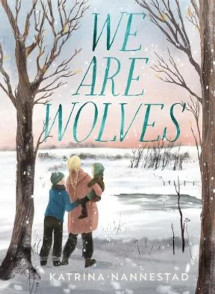We are wolves by Katrina Nannestad

ABC Books, 2020. ISBN: 9780733340888.
(Age: 10+) Highly recommended. Liesl (aged 11), Otto (aged 7) and
Mia (nearly 2) Wolf, are German children who must escape from their
home as the Russians advance at the end of World War II. As
patriotic Germans they have been taught to speak positively about
Hitler and assume that his plans are good. When finally their father
is co-opted as a soldier along with many of the remaining men of his
East Prussian village at the final stages of the war they start to
get glimpses that all is not well. The advance of the Russian Army
means they must escape in haste, initially with their Mama, Opa and
Oma. But after Oma and Opa choose to remain in a barn and following
a mishap on a frozen lake, it is just the children left to survive,
living with the hope that they will see their Mama again. Their
survival as 'wild' children is phenomenal as they must make hard
choices and choose alliances to enable them to keep going.
Eventually they seek refuge in Lithuania but must shed all traces of
their German history and identity and 'adopt' a new family
existence. The love they have for each other and their ability to
see joy amid the horror of their wild existence owes much to the
simplicity of Mia and her naive view of the world. Otto barely has
time to be a child and Liesl must act on behalf of her siblings in
ways that reveal that she has been forced to grow up much too
quickly. But will they ever see their old family again? Is there
hope in the horrors of the aftermath of war or must they lose
everything to stay alive?
This is a serious story, akin to Gleitzman's Once or Boyne's
The Boy in Striped Pyjamas, written in a naive voice about
the circumstances of war for children. Based on the truth of the
stories of other 'Wolfskinder' of this time, the Wolf children's
account is a reminder that victims of war are sometimes very young.
Katrina Nannestad is known for her tales of quirky children in
comedic circumstances, but this very dramatic tale is a step into a
much more serious approach to story writing. But she still manages
to exercise her light touch as she uses Mia's very unsophisticated
approach to life to inject some moments of lightness into a story
filled with pathos. This is a joy to read, but tears threaten
to fall at various moments as the reader struggles with this small
Wolf pack in their journey of survival. Older readers will also
enjoy this book for its insights into the German experience at the
conclusion of World War II.
Themes: World War II; Resilience; Children in War; Family; Hope;
Survival.
Carolyn Hull